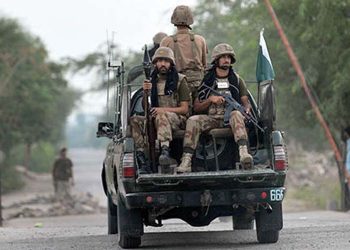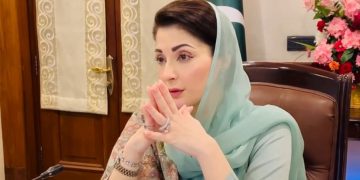The narrative of any country reflects its foreign policy, on the basis of which relations are established with some countries, and the foundation of animosity, rivalry or friendship is laid.
Take the example of Pakistan, whose foreign policy underwent a major change when Imran Khan was removed from power and Shehbaz Sharif was made Prime Minister of the country. Statements from these two contain significant differences vis-à-vis their foreign policy approach.
The National Security Advisor of the former premier, Dr. Moeed Yusuf once spoke about the cold shoulder of the current US administration by saying that Imran Khan wasn’t waiting for Joe Biden’s call, and it was up to the US President if he wished to make a call [to our PM] or not.
Pakistan’s decades-long history bears witness that no security adviser has ever adopted such an aggressive stance towards relations with the US, while the current Prime Minister does not have to seem to follow such an approach. The recent visit by Foreign Minister Bilawal Bhutto is an ample proof before all of us.
If we have a closer look, we can see that during his US visit, current Foreign Minister Bilawal Bhutto Zardari not only held meetings with various personalities to restore relations with America but also brought Pakistan’s previous foreign policy back on track. At one point, he said that Pakistan-US diplomacy was back to normal.
Interestingly, on the one hand, Pakistan adopted a more humble policy compared to an aggressive one in terms of ties with the US, and managed to restore relations with other high-ranking figures including US President Joe Biden, while on the other hand, the country made no compromise on its dignity and sovereignty.
If one takes into consideration the recent statements of Foreign Minister Bilawal Bhutto Zardari and Prime Minister Shehbaz Sharif, that Pakistan does not need to beg from the international community but what it actually needs is environmental justice, there Pakistan was once again can be seen standing at the front of foreign policy as a sovereign country.
If our readers can recall, Foreign Minister Bilawal Bhutto Zardari said during his visit to the US that some 30 million people were affected by floods in Pakistan and more than 1600 people died and that we needed justice, not aid from the international community.
A similar approach was taken by Prime Minister Shahbaz Sharif while giving an interview to a British newspaper after his visit to the United States. He said Pakistan does not want Alms of charity from the international community but wants environmental justice, and that financial assistance should not be extended in the form of a loan.
The Prime Minister said that after suffering from devastating floods, Pakistan will not start begging for help but instead, the world community should come forward and present a broader plan for the rehabilitation of flood affectees, and to cater to their needs and cope with the major challenges.
Although the importance of foreign policy and narrative are undeniable, yet Army Chief Gen Bajwa made a noteworthy remark by saying that every stakeholder in the society should give priority to restoring the ailing economy of the country. Even the Prime Minister and the Foreign Minister are needed to pay heed to those remarks.
Reaffirming his determination to step down after completing the extended term, Army Chief General Qamar Javed Bajwa highlighted the importance of the stronger economy, saying that without being in such a position [of having a strong economy], neither the nation would be able to achieve its targets nor there could be any diplomacy whatsoever.

























